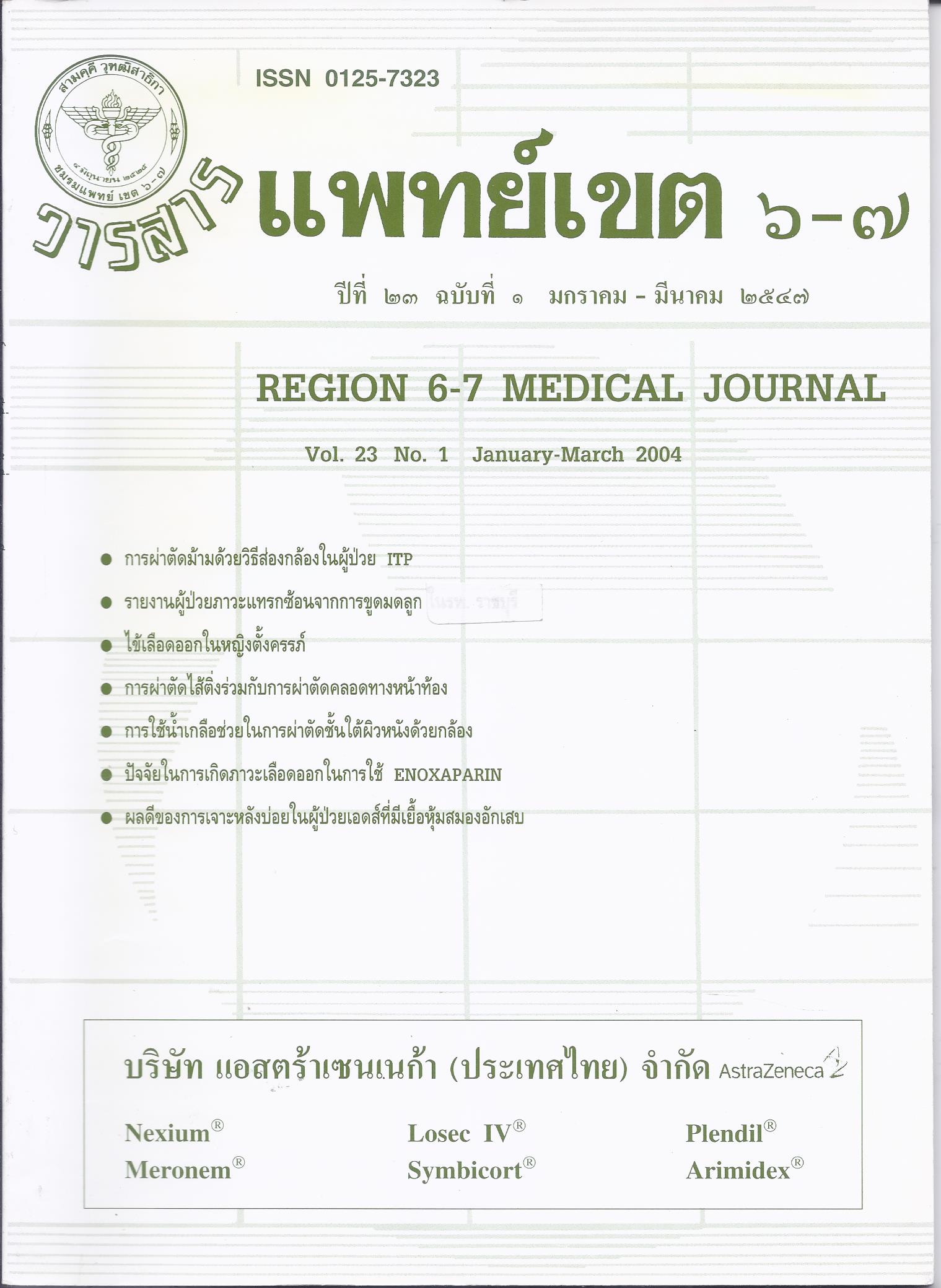ปัจจัยในการเกิดภาวะเลือดออกจากการใช้ยา Enoxaparin ในผู้ป่วยโรคหลอดเลือดหัวใจโคโรนารี
บทคัดย่อ
Recently, Low molecular weight heparin (LMWH) has more advantage than Unfractionated heparin (UFH) treatment in Unstable angina and Non-ST Segment elevation myocardial patients because of its lesser bleeding complication, convenient use and no need to monitor a PTT level to control the risk of bleeding. However in the clinical practice LMWH treatment could induce major and minor bleeding. The retrospective descriptive study for fifty Unstable angina and Non-ST Segment elevation MI patients whom admitted in ICU medicine ward in Somdejphraphuttalertla hospital during October 1, 1999 to September 30, 2002 and used Enoxaparin (a drug in LMWH group) for treatment were investigated. After comparison the bleeding to the non-bleeding groups it was founded that the age above 60 years old were significant critical factor to the bleeding complication (p< 0.05). However other factors such as sex, previous history of GI bleeding, history of Aspirin and/or NSAIDS used, Co-morbid diseases factor of congestive heart failure, hypertension and chronic renal failure, low platelets counts (less than 150,000/cumm), low pack red cell volume (hematocrit less than 30%), serum creatinine more than 2.0 mg/dl could sustain more bleeding complicate but were not statistically different. Thus Enoxaparin Therapy in Coronary heart disease should be precaution in the age above 60 years and recommended dose should not exceeded 1 mg/kg subcutaneous injection every 12 hours.
ดาวน์โหลด
เผยแพร่แล้ว
รูปแบบการอ้างอิง
ฉบับ
ประเภทบทความ
สัญญาอนุญาต
ลิขสิทธิ์บทความเป็นของผู้เขียนบทความ แต่หากผลงานของท่านได้รับการพิจารณาตีพิมพ์ลงวารสารแพทย์เขต 4-5 จะคงไว้ซึ่งสิทธิ์ในการตีพิมพ์ครั้งแรกด้วยเหตุที่บทความจะปรากฎในวารสารที่เข้าถึงได้ จึงอนุญาตให้นำบทความในวารสารไปใช้ประโยชน์ได้ในเชิงวิชาการโดยจำเป็นต้องมีการอ้างอิงถึงชื่อวารสารอย่างถูกต้อง แต่ไม่อนุญาตให้นำไปใช้ในเชิงพาณิชย์




